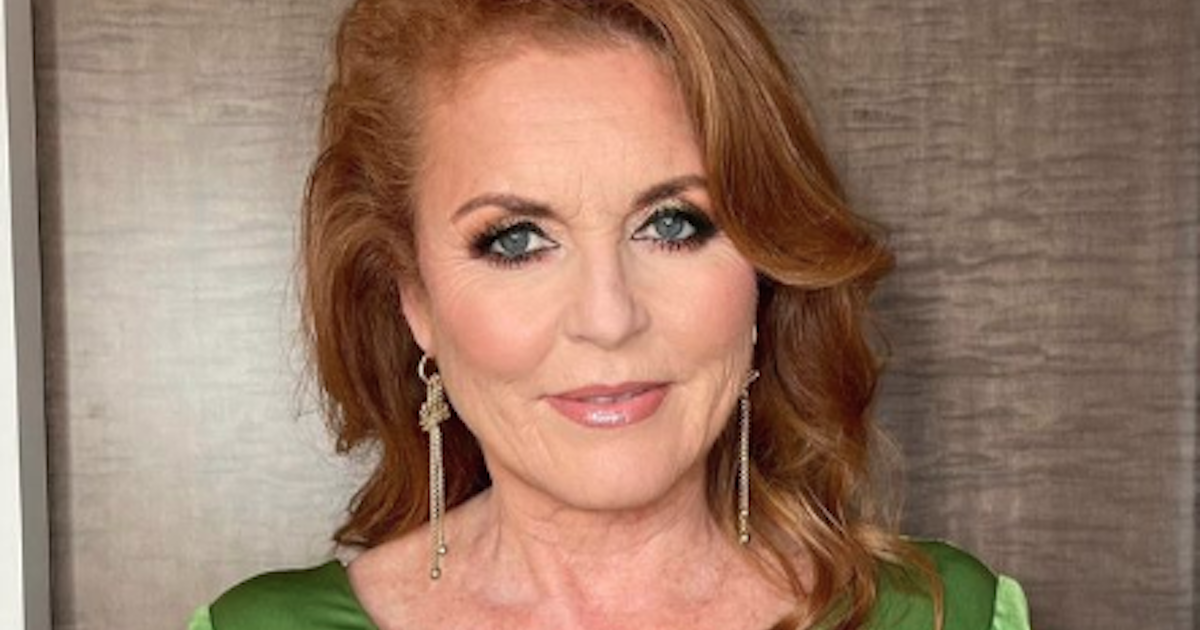Putting Yourself First After A Cancer Diagnosis
- Duchess of York, Sarah Ferguson recently received an early-stage breast cancer diagnosis after having a routine mammogram.
- The 63-year-old British author, who underwent a single mastectomy following her cancer news, was contacted by her “good friend” Piers Morgan and revealed some “surprising” insight into how she’s coping with her diagnosis.
- In Morgan’s latest column for The Sun, the 58-year-old English broadcaster spoke about how the Duchess’ cancer diagnosis changed her outlook on life.
- Many people, despite illness, the loss of a job, or other challenges, make a choice to start over and regain control over their future. A new mindset and starting over is an arduous, but most certainly an empowering step towards a brighter future.
- SurvivorNet experts suggest these four ways to start over: Examine your thoughts, seek help, realize that you’re not the first, and visualize the future.
Following news of the diagnosis, Fergusona member of the British royal family, who was previously married to Prince Andrew, the father of her two children, Princess Beatrice and Princess Eugeniewas contacted by her “good friend” Piers Morgan and offered him some “surprising” insight into how she’s coping with her diagnosis.
Read More
Morgan’s column was written in the wake of her breast cancer diagnosis reveal made during an episode of her podcast, “Tea Talks with the Duchess and Sarah.”
“It’s typical of her to instantly try to turn such a negative experience into a positive, but very untypical of her to suspend her astoundingly selfless instincts and focus instead on helping herself,” Morgan explained. I'm very glad she is though, because the world's a better place with a healthy vibrant Sarah Ferguson in it.”

He continued, “She's one of my favorite people; incredibly kind and empathetic, absurdly generous, endearingly modest, hilariously fun-loving, and ferociously loyal.
“Yes, she's flawed and prone to dropping massive clangers, but so are all my favorite people.”
After pointing out how others, like Oprah Winfrey, have praised Ferguson as a “good person,” who helped people in need during the Covid-19 pandemic, Morgan concluded, “Now she's facing her own battle for life, and I wish my wonderfully ebullient friend all the luck in the world and a full, speedy recovery. She deserves it.”
During Ferguson’s podcast, which was recorded one week before she underwent surgery for cancer, the TV personality said, “Tomorrow I'm going in for a mastectomy.”
She also urged others to be aware of symptoms and health, adding, “I want every single person who is listening to this podcast to go get checked, go get screened, and go do it.”
“I taking this as a gift to make real changes for myself and to nurture myself and stop trying to fix everyone else,” she said. “I’m going to get super fit and super strong.”
Starting Over After a Life-Changing Event
Many people, despite illness, the loss of a job, or other challenges, make a choice to start over and regain control over their future. A new mindset and starting over is an arduous, but most certainly an empowering step towards a brighter future. Change is never as easily, done as it is to talk about, but here are some, hopefully, helpful ideas below.
Here are four ways to start over:
- Examine your thoughts. Take time to reflect on the tragedy or difficulty you are facing. Dr. Scott Irwin tells SurvivorNet that, often, people with cancer and chronic disease are “grieving the change in their life, the future they had imagined is now different.”
- Seek help. Dr. Irwin, who directs Supportive Care Services at Cedars-Sinai Medical Center in Los Angeles, adds that talk therapy can help people significantly: “It's about meeting the individual patient where they are and their feelings, how they've always dealt with their body image, what the body image changes mean now in their lives and their relationships, and how they can move forward given the new reality.”
- Realize that you are not the first. Study the lives of other people who have faced similar difficulties. Dr. Samantha Boardman tells SurvivorNet, “Having support we know is really critical in the healing process." She adds there is also a benefit in “talking to those who've, you know, been through this process, who are maybe a couple of steps ahead of you, who can tell you what it's like to walk in their shoes and the unbelievable wisdom that one can gain from speaking to them.”
- Visualize the future. Imagine what it will look like for you to start over. Many people find it very helpful to create a vision board. Cut out pictures or quotes or mementos that give you a concrete picture of your future. Look to it when you are feeling down or in need of a lift. The good news? It works.
Finding Gratitude After Cancer
Many cancer patients find a sense of gratitude on their journeys. To be grateful means being thankful for what you have and showing appreciation for it. It's a mindset that helps people going through tough times and our SurvivorNet experts encourage cancer warriors and their loved ones to practice gratitude.
Dr. Zuri Murrell, a colorectal cancer surgeon at Cedars-Sinai Medical Center, told SurvivorNet that his patients who live with gratitude tend to handle treatment better because this attitude is one way to stay mentally healthy.
Cancer battles are stressful but finding things that you are grateful for can help manage the stress. Stress and anxiety can lead to physical issues, and practicing gratitude can help get both under control.
"The patients who do well with cancer, they live life with that kind of gratitude, but in terms of everything," he explained. “They're grateful, not for cancer, but they're grateful for an opportunity to know that life is finite.”
Experienced doctors will tell you that people who find a way to work through their emotions and stay positive do end up doing better.
Dr. Charmain Jackman is a licensed psychologist and founder of InnoPsych. She echoes SurvivorNet experts on the benefits of positive mental health while facing a health diagnosis.
"In the face of a life-threatening diagnosis, fear, hopelessness, and despair can quickly take space in your mind. However, your mindset is a superpower and can be a potent antidote to illness. Practicing gratitude, cultivating joy, and connecting to the community are practical ways to develop a resilient mindset," Dr. Jackman said.
Questions to Ask Your Doctor
- Where can I seek additional support if I am struggling mentally?
- Are there any support groups in the area for people like me?
- Can you recommend a mental health professional for my situation?
- Does my situation warrant medication for my mental health and how might that affect my cancer treatment plan?
Why Mammograms Are An Important Screening Tool
Breast cancer is usually detected through a mammogram, which looks for lumps in the breast tissue and signs of cancer.
When Should I Get a Mammogram?
While there is some disagreement about the exact age a woman should start getting mammograms, there is a general agreement among doctors that it should happen in their 40s.
The American Cancer Society (ACS) suggests women should start yearly mammogram screenings for breast cancer at age 45 if they are at average risk for breast cancer.
The ACS also advises:
- Women aged 40-44 have the option to start screening with a mammogram every year
- Women aged 55 and older can switch to a mammogram every other year
- Women aged 55 and older could also choose to continue yearly mammograms
Just recently, the U.S. Preventive Services Task Force (USPSTF) drafted new recommended guidelines that advise all women to start screening for breast cancer every other year at age 40 a significant change from 2016, when the group advised screening to take place between the ages of 50 to 74 years old.
When You're Getting a Mammogram, Ask About Dense Breasts
In regard to screening for breast cancer, a woman is considered to be at average risk if she doesn't have a personal history of breast cancer, a strong family history of breast cancer, a genetic mutation known to increase risk of breast cancer such as a BRCA gene mutation or a medical history including chest radiation therapy before the age of 30.
Contributing: SurvivorNet Staff
Learn more about SurvivorNet's rigorous medical review process.


